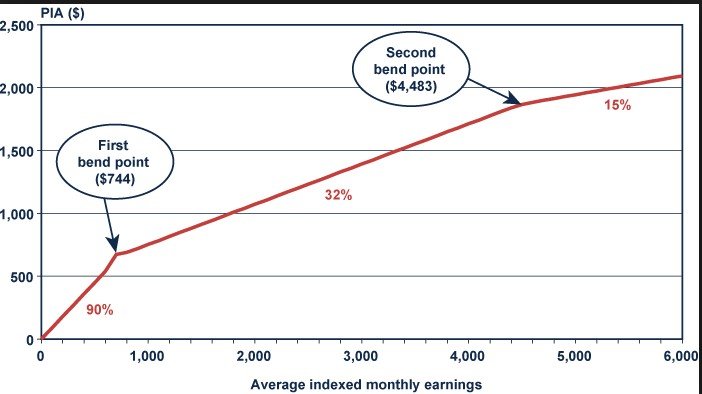I've used this example before, but I'll try it again:
A) Andy had a very low income, saved virtually nothing, arrived at retirement with a $12,000/yr SS benefit and no savings.
B) Bob had a high income, saved a reasonable percent, had decent investment returns, and arrived at retirement with substantial assets plus a $28,000/yr SS benefit.
C) Chuck had a high income, saved virtually nothing (or had disastrous investment returns), arrived at retirement with no assets, but with a $28,000/yr SS benefit.
As a taxpayer, I'm fine with paying taxes so Andy can get his basic benefit. It allows him to live indoors and shop in grocery stores.
I'm also okay with providing a basic benefit for Chuck. Regardless of the reason, I don't want him homeless and starving in old age.
And, I understand that if we provide a benefit for Chuck, we need to provide just as much for Bob. If we don't, we "penalize Bob for saving".
But, I don't have a good reason for giving either Chuck or Bob a higher benefit than Andy. If $12,000/yr is enough to provide the basics for Andy, that's enough for Bob and Chuck as well. This is especially true when I understand that many people paying SS taxes today earn a lot less than Bob or Chuck did.
I know that some people will say that Bob and Chuck paid more taxes than Andy, so they should get a higher benefit. I don't see that. We don't apply that reasoning to food stamps or Medicaid or Medicare or police protection or parks or schools (mostly). I don't know why SS should be the exception (other than politics).
Some proposals for SS reform include "progressive indexing" - slowing the nominal growth in higher benefits. I like that idea. Long term, I think SS should transition to a flat benefit at some number around the poverty level.

